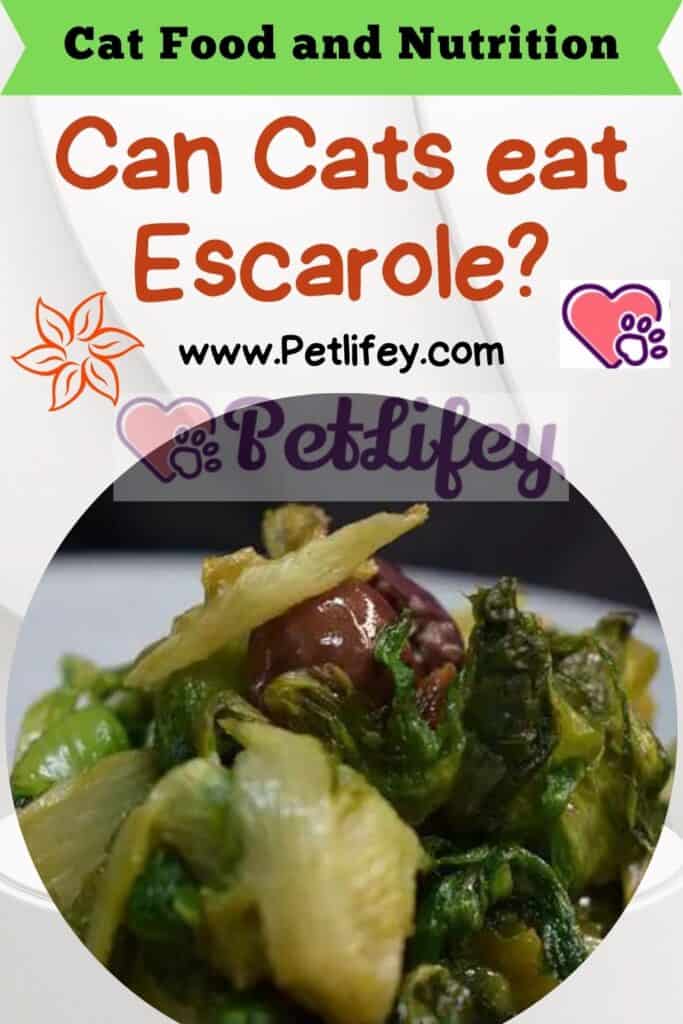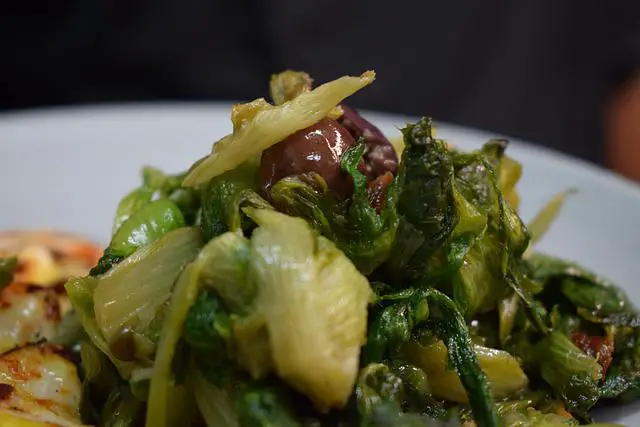
Can the cat eat escarole? Let’s see what the possible benefits or risks that are related to the consumption of this vegetable.
It is not uncommon to find ourselves at the table and want to share our food with the cat or dog.
However, we know very well that not all foods are suitable for the body of our four-legged friend.
Regarding this, we can therefore confirm that in all categories of various foods there are products that may or may not be present in our cat’s diet.
In this article we will try to understand if the cat can eat escarole, a food belonging to the vegetable category.
In addition, know if and what are the possible advantages or disadvantages of this vegetable.
Can the cat eat escarole?

Escaroles are vegetables with characteristic broad, wavy or slightly curled leaves, superimposed to form a heart called “heart”.
They are part of the Asteraceae family and exist in different varieties that are distinguished from each other by the size of the head. They are rich in vitamins, mineral salts and have a mild analgesic and relaxing action.
Thanks to the high water content (over 90%) they are also very refreshing.
Escaroles provide the cat with fiber that is useful against constipation, as well as providing carbohydrates and minerals. To make them more digestible, it is advisable to administer the cooked escarole, blanched in water, before offering them to the cat.
The advantages that escaroles can confer on humans as well as cats are:
- promote digestion;
- purifying and moisturizing;
- counteract cholesterol;
- regulate blood pressure;
- counteract the onset of diabetes mellitus;
- they are indicated for those with metabolic diseases;
- rich in riboflavin.
However, as we all know, each animal is different from another and therefore it is possible that your cat may suffer from allergies and intolerances that are often unknown to exist.
In fact, experts suggest that you contact your veterinarian to find out in this specific case if your cat can eat escarole or create some gastrointestinal problems.
Vegetables for the cat
The cat was born as a carnivorous animal but over time with the transition from wild cat to domestic cat it has also managed to accept foods of plant origin.
In particular, if the animal is accustomed from an early age immediately after weaning to a feeding regime that can include all healthy and nutritious foods.
A varied and balanced diet for the cat must include: lipids, proteins, mineral salts, vitamins and water.
These values are also present in vegetables, which offer cats various benefits such as:
- proper functioning of the gastrointestinal tract;
- promote its hydration capacity;
- they favor the transit speed of food;
- promote the functionality of the digestive tract.
Attention! Let’s not forget that vegetables can only be a complement to the cat’s diet and that not all vegetables are allowed for the animal.
In fact , some vegetables are toxic to cats and as such should be avoided, for example: onion, garlic, green tomatoes, raw or unripe potatoes, shallots and leeks.
And what about endives? Can the cat eat escarole? Let’s find out in the next paragraph.
Risks
As we have previously mentioned, one should not overdo the administration of certain foods.
Since, although they may be nutritious and useful for humans, the excess can cause a state of discomfort in the animal and generate grastrointestinal problems in the cat.
However, when we first offer a new food to our pet, experts recommend administering the product in small doses.
This distribution method allows us to understand if the cat is allergic or intolerant to what we have offered or simply the animal may just not like it.
In the first case, the animal will show very evident signals, through which we could realize that the cat’s body does not tolerate that specific food.
Symptoms could be the following:
- vomiting on an early morning fasting;
- flatulence;
- itch;
- redness;
- seborrhea;
- dermatitis;
- paw licking;
- dry and opaque hair;
- diarrhea or constipation in cats.
Faced with these very specific symptoms, it is necessary to take the cat to the vet and let the doctor intervene, before things can precipitate.






